General election 2019: What's at stake in Northern Ireland?
- Published

The UK general election will take place on 12 December
What's at stake in Northern Ireland in this Westminster election?
For EU remainers and nationalists it's a chance to turn the tables on the DUP, who have been enjoying their moment in the sun propping up the Conservatives for the last two years.
Anxiety over Brexit and annoyance that the DUP is viewed as the sole voice of Northern Ireland in the Commons has led the SDLP, Sinn Fein and the Greens to take some radical steps.
Their unofficial election pact could remove the DUP Belfast South MP Emma Little-Pengelly and put the party's deputy leader Nigel Dodds under intense pressure in the north of the city.
The DUP is also under fire from its rival, the Ulster Unionists.
New leader, same rivalry
Their new leader, Steve Aiken, argues that remaining in the EU is better than accepting an economic border down the Irish Sea, as envisaged in Boris Johnson's Brexit deal.
Mr Aiken is endeavouring to spread the blame for that deal beyond Downing Street to Dundela Avenue, the DUP headquarters in Belfast.
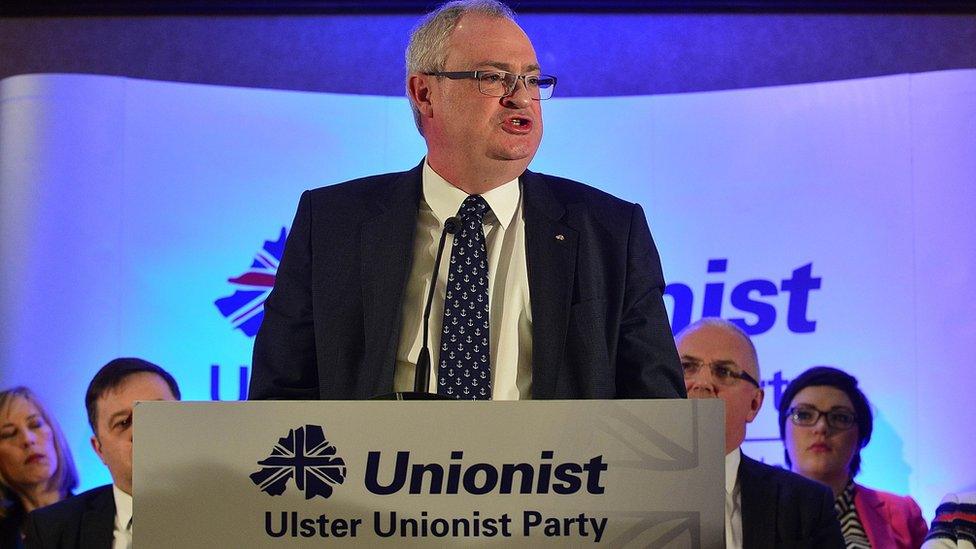
Steve Aiken, MLA for South Antrim, is the Ulster Unionist Party's new leader
The DUP is fighting back on both fronts.
It plays down its role in the Brexit negotiations, pointing out that it rejected the final Johnson deal.
It plays up its achievement in negotiating an extra £1bn for Northern Ireland as part of its confidence-and-supply agreement with the Tories.
And it argues that division within unionism will only bolster Sinn Fein.
Heir to the Hermon throne?
Whilst the DUP faces challenges in Belfast South and North, it senses an opportunity in North Down, due to the retirement of the only pro-remain local MP to take her seat, Lady Sylvia Hermon.
The DUP was close behind the independent unionist two years ago, and believes that if the pro-remain vote in the constituency divides evenly between the Ulster Unionists and the Alliance, the DUP might come out on top.
The SDLP hopes its Belfast South candidate, the independent minded Claire Hanna, might fill Lady Hermon's shoes as a voice for remain in the Commons chamber.
Ms Hanna's party leader Colum Eastwood is also making the argument that local MPs must take part in vital Brexit votes in his effort to unseat Sinn Fein's Elisha McCallion in Foyle.
The arguments within nationalism about the respective merits of staying away from Westminster or holding your nose and taking an oath you don't believe in have been well rehearsed.

The general election explained

Two years ago when Sinn Fein wiped out the SDLP, the discussion seemed to have been comprehensively concluded in favour of abstentionism.
Now the extraordinarily tight votes on Brexit may have given some voters pause for thought.
However, one peculiarity of the SDLP stance is that - for the first time - the party is standing aside in favour of an abstentionist in Belfast North.
It reasons that if Sinn Fein's John Finucane replaces the DUP's Nigel Dodds, that is one less vote for Brexit at Westminster.
Nevertheless, the pragmatic move jars with the party's message elsewhere.
Will the Alliance surge continue?
The cross community Alliance party has resisted pressure to stand aside in a number of places - instead, it proudly proclaims that it is competing in all 18 Northern Ireland seats.
In May, a surge in support gave Alliance its first seat in the European parliament. Its MEP and party leader, Naomi Long, is now hoping to recapture her old Westminster seat in East Belfast from the DUP.
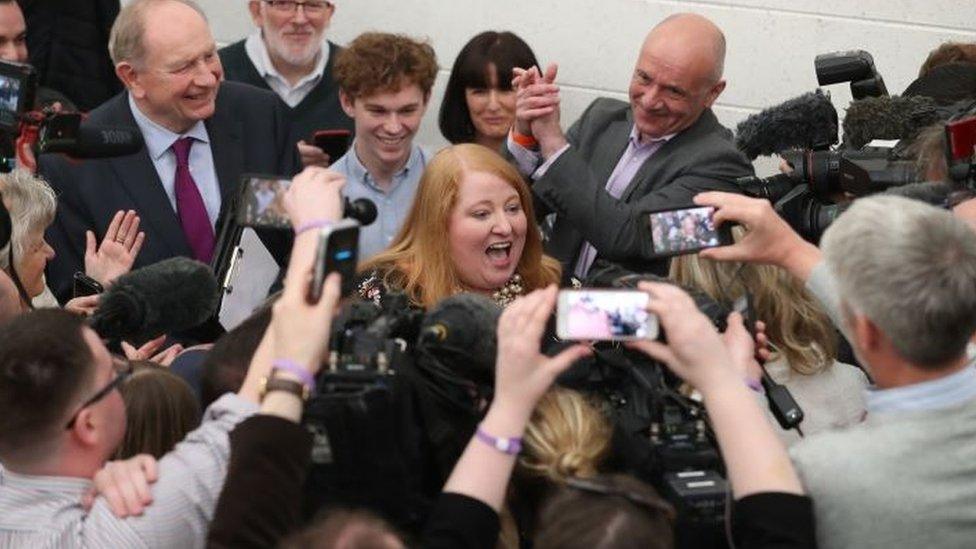
Naomi Long is hoping for a similar result to May's European elections, in which her Alliance party enjoyed a rise in votes
Mrs Long's deputy, Stephen Farry, is endeavouring to take the North Down seat vacated by Lady Sylvia Hermon.
However, the first-past-the-post constituency system isn't as advantageous to Alliance as the cross Northern Ireland PR European election - this could curb the surge so much in evidence only six months ago.
Besides taking the DUP to task for its Brexit strategy in places like South Antrim, East Antrim and North Down, the Ulster Unionists will be working rather more closely with their rivals in Fermanagh South Tyrone.
Here, the DUP is backing the Ulster Unionist Tom Elliott, who took the seat from Sinn Fein back in 2015, but lost it two years ago.
Mr Elliott, who describes himself as a soft leaver, rejects the Boris Johnson Brexit deal, but is far less combative than his leader Steve Aiken in pinning the blame on the DUP.
Besides Fermanagh South Tyrone, the other area where the two unionist parties are cooperating is Belfast North, where the Ulster Unionists stood aside in an attempt to shore up support for Nigel Dodds.
The party came under intense pressure, including threats from loyalist paramilitaries to its staff.
It denies it has bowed to the paramilitaries.
The contest in North Belfast promises to be extremely close and extremely intense, with the focus on both the DUP deputy leader and the Sinn Féin candidate.
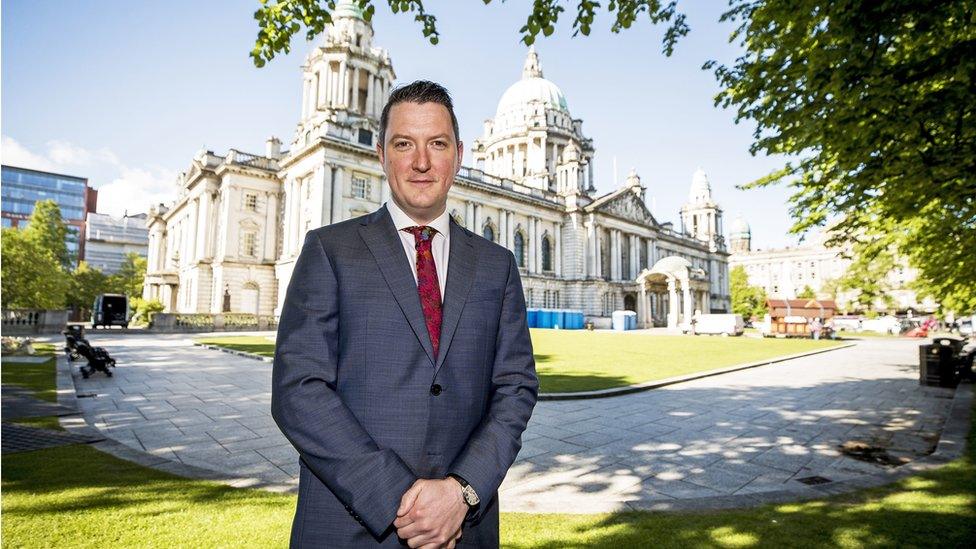
Sinn Féin candidate John Finucane has his sights on the Belfast North seat
John Finucane is well known both as the current Belfast mayor and the son of the murdered lawyer Pat Finucane.
The Finucane family has commanded media attention during their long campaign to secure an inquiry into allegations of security force collusion in the 1989 murder of the leading defence solicitor.
Besides the main parties, there are candidates from the Greens, People Before Profit, the Conservatives and UKIP in the race.
The Traditional Unionists - who backed Brexit - are sitting this election out, whilst there are three independents, including a trade unionist who backs the Labour party.
There will be a fair bit of interest in how much of a dent the anti-abortion Irish republican Aontú makes on either Sinn Féin or the SDLP.
A game of pacts and swings
Once the dust settles, we shall find out whether the DUP has been weakened or strengthened, and if there will be any non-abstentionist pro-remain MPs to take Lady Sylvia Hermon's place.
Then we shall find out whether the UK-wide result is close enough for any Northern Ireland representatives to make a difference to the make-up of the next UK government or the future direction of the Brexit negotiations.
After that, we are promised fresh talks on restoring Stormont in the run up to another deadline.
On 13 January, the current law giving civil servants extra flexibility to run public services here expires.
If those talks fail, the Northern Ireland Office reckons a fresh assembly election will prove "inevitable".
That's good news for election anoraks who can't get enough of pacts and swings, but bad news for those party treasurers who haven't recently benefitted from huge bequests from eccentric millionaires.

CONFUSED? Our simple election guide, external
POLICY GUIDE: Who should I vote for?, external
REGISTER: What you need to do to vote

- Published7 November 2019
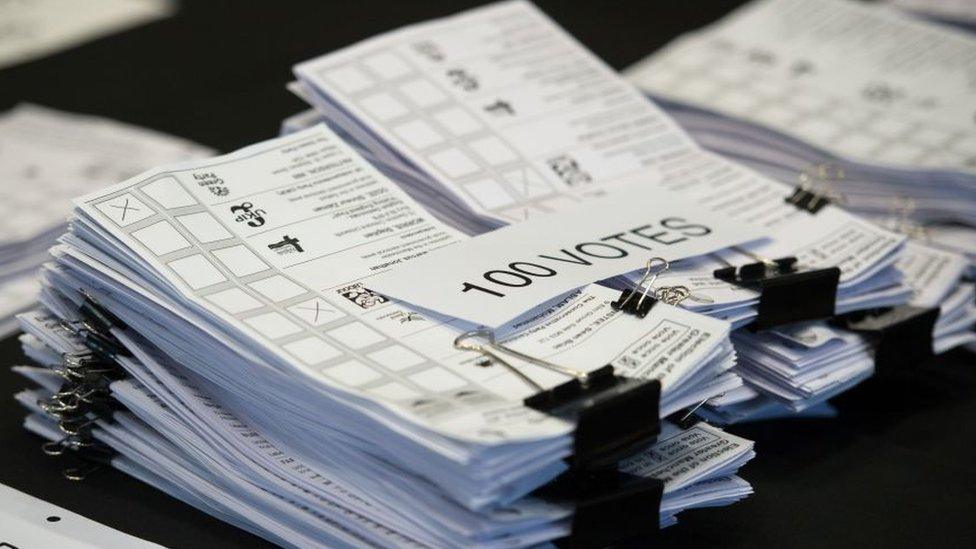
- Published18 November 2019
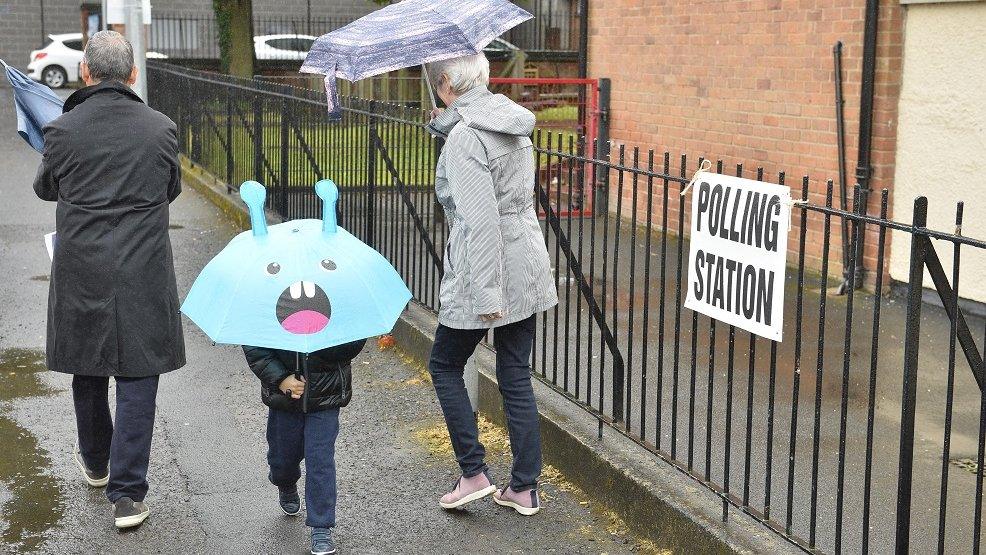
- Published18 November 2019
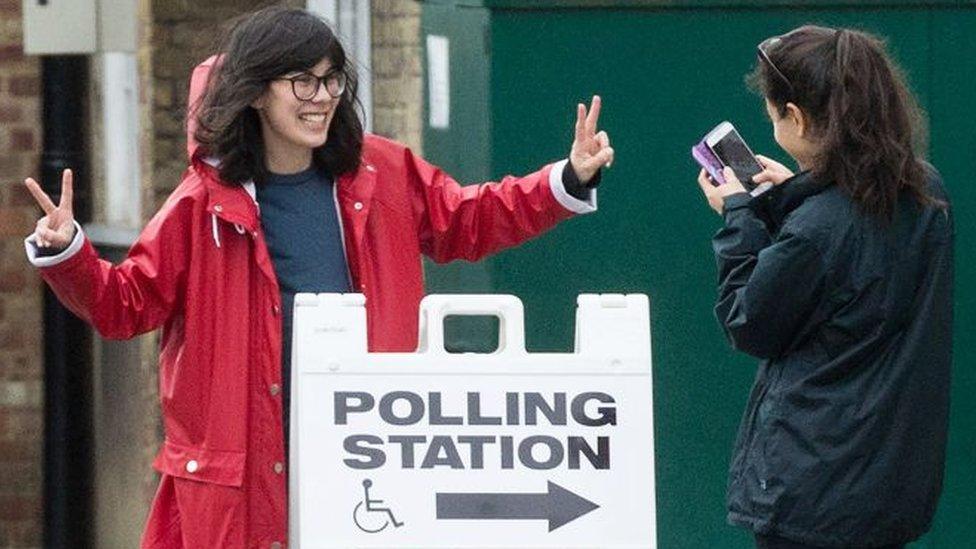
- Published18 November 2019
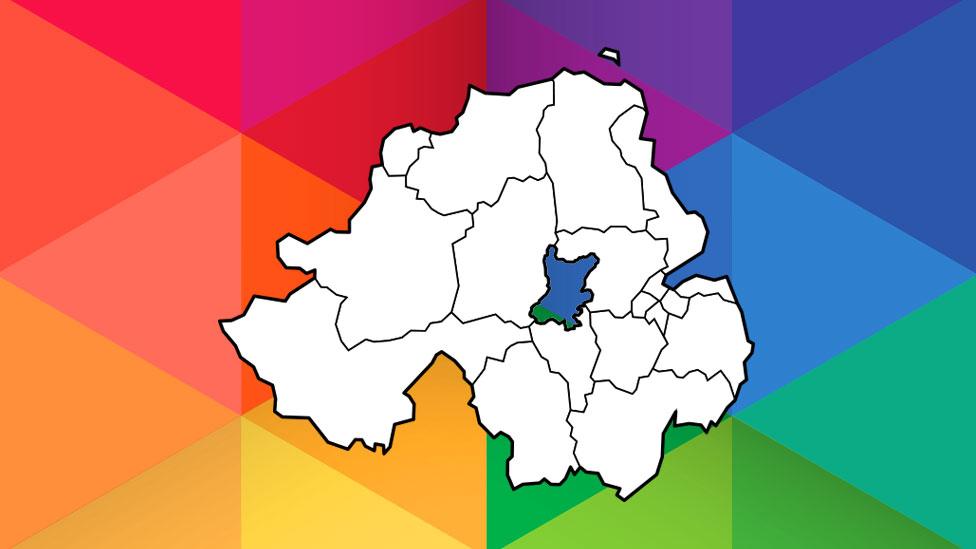
- Published11 December 2019

